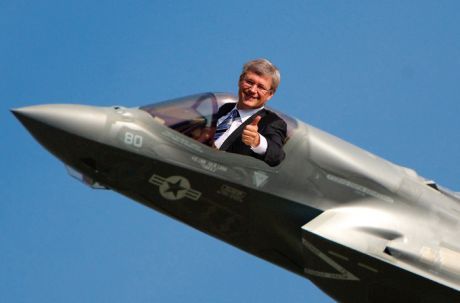Features
You are here
Stop Harper: stop the war

August 31, 2015
The US led war against ISIS in Iraq and Syria isn’t going well. According to US defense officials the year-long bombing campaign has resulted in a stalemate, with no "meaningful degradation” in the number of ISIS fighters.
Of course it hasn’t. ISIS emerged from the catastrophic Western war and occupation of Iraq, and Western-backed counter-revolution against the Arab Spring. Bombing Iraq yet again will only make things worse, and encourage extremist groups to emerge. Now imperial powers are broadening the regional crisis by including Turkey, oppressor of the Kurds.
Kurdistan
Most NATO countries have historically ignored the oppression of the Kurds, or cynically used their oppression as justification for imperial intervention. In the 1980s the West armed Saddam Hussein with chemical weapons to gas the Kurds. Then in 2003 the West used that crime as an excuse to invade Iraq, claiming to help the Kurds while continuing to arm the Turkish state against them.
One of the few effective ground forces against ISIS are Kurdish groups. They have been able to push back against ISIS in Syria and Iraq, and the West have trained sections of these forces and used this as justification for the latest war. But if the West cared about Kurdish self-determination it would stop arming Turkey, and stop labelling Kurdish resistance groups as terrorists.
When ISIS lay siege to the Kurdish city of Kobane, which the West used it as justification for Western intervention, Turkey intervened to close the border to prevent Kurdish forces from coming to the defence of the city. For the ruling AKP in Turkey, the Kurds represent a greater threat to their power than ISIS does. That is one reason why they are latecomers to the anti-ISIS party.
Turkey
But now Turkey has formally joined the imperial coalition against ISIS, and is using that war as an excuse to attack the Kurds.
The Turkish elections in June saw the Kurdish People’s Democratic party (HDP) receive 13 per cent of the vote and 80 seats in Parliament. It was this share of the vote that stopped the Turkish president Recep Tayyip Erdoğan from forming a majority and implementing broad changes that would have given him even more power. At that point the Turkish state decided to delay peace negotiations with the HDP which had been ongoing since 2012. After the attack on Suruc in July the gloves were off and the Turkish generals decided to use he attack to brutally suppress the Kurds anew. Although ISIS carried out the attack, the state seized the opportunity to round up anyone suspected of being in opposition to the government.
What this means for the West is that the main NATO partner in the region is now working at cross-purposes to the other coalition countries. Yet at a meeting on Brussels, most western countries, including Canada, decided to allow the Turks broad leeway in fighting the Kurds.
Now the West is again supporting Turkey’s war on Kurdistan, because Turkey offered access to the Incirlik Air Base to launch attacks against ISIS. The base makes western bombing runs even easier. This development adds another contradictory force to the already messy situation in the region.
Canada
The Canadian government is now arming Kurdish groups that it labels terrorists, while simultaneously supporting Turkish attacks on those same groups.
The Conservatives in Canada don’t really care however. They are more interested in using the war against ISIS for domestic purposes. If they can instil enough fear then they may be able to recapture power in the election. The fact that the war is a disaster needs to be a news story in Canada but is largely being ignored.
At the leaders debate Tom Mulcair rightly challenged the latest war on Iraq and Syria, but he did so by counter-posing it to UN wars (like the bombing of Libya that the NDP supported) and even he defended NATO wars. This reduces the war to a simple policy decision that can be manoeuvred around, rather than a threat to oppose. In 2003 the NDP similarly began by opposing the war if it was not under UN mandate, but the anti-war movement pushed the party to agree to “No war on Iraq, with or without the UN.”
In the midst of the economic crisis this is even more urgent. Not only is the war killing countless numbers of people abroad, but it’s diverting resources from jobs and services at home, including for veterans. Minister of War Jason Kenney admitted the bombing of Iraq and Syria will cost more than half a billion dollars. Think of what those resources could do for healthcare, education, climate jobs, housing, veterans services, or other urgent needs.
Rather than opposing the war because it’s not under the banner of NATO or the UN, the NDP should oppose the war on principle and campaign to divert military spending to fight the austerity agenda.
Section:
Topics:










